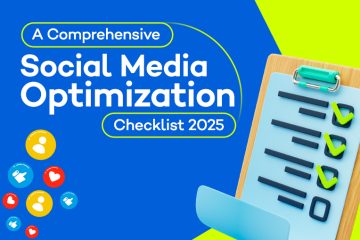For businesses, making your website visible in search engines is a game-changer. If you’re not ranking on the first page of Google, you’re missing out on a huge amount of traffic. The key to securing those top spots lies in effective keyword research.
How to do keyword research is a question that many business owners ask, and for good reason. With the right keywords, you can target the right audience, increase your website traffic, and boost your sales. Whether you’re running an ecommerce website or offering services in a specific niche, understanding how to do keyword research is essential to the success of your SEO efforts.
At DI Infotech, one of the leading SEO agencies in Delhi, we specialize in helping businesses rank on the first page of search results, driving high traffic, and boosting sales. In this guide, we will break down the process of keyword research and show you how you can use this knowledge to take your website to the top of search engine results.
Why is Keyword Research Important for SEO Success?
Before diving into the “how,” it’s important to understand why keyword research is the backbone of SEO. Here’s why:
- Targeted Traffic: Effective keyword research ensures that you’re attracting the right audience. By using terms and phrases your potential customers are searching for, you drive more relevant traffic to your site.
- Competitive Edge: Understanding the keywords your competitors are ranking for gives you an edge in the market. Keyword research helps you identify gaps and opportunities to outperform them.
- Better Conversion Rates: When you target keywords that match user intent, you’re more likely to convert those visitors into customers. It’s all about matching what people are searching for with what you’re offering.
Now that we understand the importance of keyword research, let’s dive into how you can do it step-by-step.
Step-by-Step Guide on How to Do Keyword Research for SEO Success
Step 1: Understand Your Business and Audience
The first step in keyword research is to understand your business, products, services, and target audience. Ask yourself:
- Who are your customers?
- What problems do they have, and how does your product or service solve them?
- What words or phrases would they use to search for your products or services?
For example, if you are an ecommerce website designing company in Delhi, some initial keyword ideas could include terms like “best ecommerce website designing services” or “top ecommerce website design company in Delhi.”
Understanding your audience’s needs is key to finding keywords that will drive relevant traffic.
Step 2: Brainstorm Potential Keywords
Start brainstorming potential keywords related to your business. Think about:
- Core products or services.
- Common industry terms.
- Long-tail keywords (longer, more specific phrases).
For an SEO agency in Delhi, you might consider terms like “SEO services in Delhi” or “affordable SEO agency in Delhi.” Brainstorm both broad terms and more specific, niche keywords that have the potential to target customers further down the sales funnel.
Step 3: Use Keyword Research Tools
After brainstorming, it’s time to use keyword research tools to find out what people are actually searching for. Here are a few popular tools you can use:
- Google Keyword Planner: A free tool that helps you find keyword ideas and shows you how often certain terms are searched.
- SEMrush: Offers keyword research features that help you identify high-traffic keywords and see what your competitors are ranking for.
- Ahrefs: A popular SEO tool with powerful keyword research capabilities, including competitive analysis.
Using these tools will give you data-backed insights into which keywords are worth targeting.
Step 4: Analyze Keyword Competition
Not all keywords are created equal. While some might have high search volume, they also come with intense competition. The next step is to analyze the competition level of your chosen keywords.
- Low competition keywords: These are ideal for businesses that are new or smaller in size. They are easier to rank for and typically have a more niche audience.
- High competition keywords: These might be harder to rank for but are worth targeting if you’re an established business with a strong SEO strategy.
By analyzing the competition level, you can balance your strategy with both competitive and low-competition keywords, ensuring you can rank for a mix of easy and challenging terms.
Step 5: Choose Keywords Based on Search Intent
Search intent refers to the reason behind a user’s search query. People search for different things at different stages of their buying journey. Understanding this is essential for selecting keywords that align with their needs. Search intent can be classified into:
- Informational: Users looking for information (e.g., “how to build an ecommerce website”).
- Navigational: Users looking for a specific website (e.g., “DI Infotech SEO agency in Delhi“).
- Transactional: Users ready to make a purchase (e.g., “buy ecommerce website design services in Delhi”).
By targeting keywords based on the user’s intent, you can increase your chances of converting traffic into actual sales.
Step 6: Prioritize Keywords with High Search Volume and Low Competition
Once you have a list of potential keywords, it’s time to prioritize. Ideally, you want keywords that have a high search volume but low competition. These are the terms that will drive significant traffic without being too difficult to rank for.
Use the keyword research tools mentioned earlier to find the right balance between volume and competition.
Step 7: Refine Your Keyword List
Narrow down your list by focusing on keywords that are relevant to your business and audience. Aim for a mix of:
- Short-tail keywords: Broader terms that typically have high search volume but also come with higher competition.
- Long-tail keywords: More specific, lower-volume terms that attract users closer to making a purchase.
For example, as an ecommerce website designing company in Delhi, long-tail keywords like “affordable ecommerce website design services in Delhi” may be more beneficial than a short-tail keyword like “ecommerce design.”
Conclusion
How to do keyword research is a fundamental skill for any business looking to succeed in SEO. By identifying the right keywords, understanding search intent, and analyzing competition, you can significantly boost your website’s visibility and traffic.
At DI Infotech, we specialize in helping businesses like yours rank on the first page of Google, drive high traffic, and convert that traffic into sales. As a trusted SEO agency in Delhi, we have the experience and tools to perform in-depth keyword research and develop tailored strategies for your business. If you’re ready to take your website to the top of search results and increase your sales, get in touch with us today!
Ready to boost your business with expert SEO services? Contact DI Infotech, the leading SEO agency in Delhi, today and let’s work together to drive traffic and increase sales through effective keyword research!





0 Comments